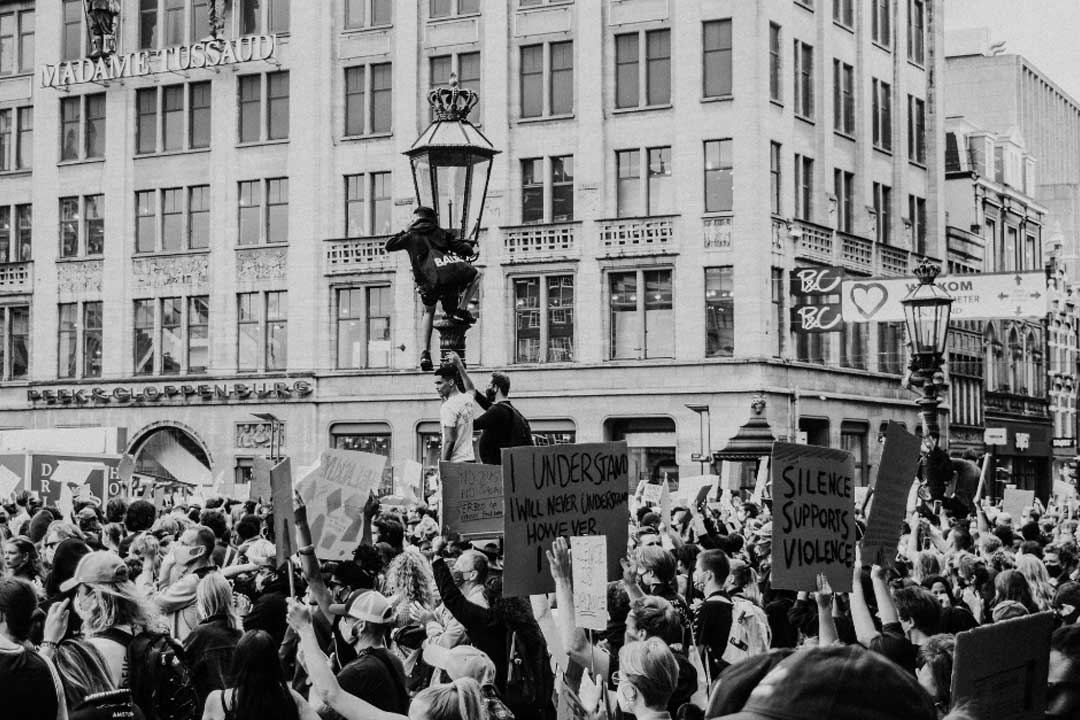This is the arresting and dominant fact about modern social discussion; that the quarrel is not merely about the difficulties, but about the aim. We agree about the evil; it is about the good that we should tear each other’s eyes out.
– G.K. Chesterton, 1910
Over 113 years ago, G.K. Chesterton set out to answer tough questions in his powerful book, What’s Wrong with the World? In his opening chapter he reminds his readers that there is strong agreement that there is evil in the world—or at least agreement that the world could be much improved. But despite the unity on this general analysis, the specific prescription for what would make the world a better place to live is rife with disagreement.
Both the church and unbelieving culture continue to silo into stark tribes rooted in ethno-centrism, political ideology, socioeconomics, gender identity, and sexual orientation, among other categories. The dividing lines are so strong that they have created fractures in churches, neighborhoods, and families.
Regardless of tribal affiliation, it is safe to assume that most people would agree that our systems, communities, and relationships are broken, require healing, or could at minimum use improvement. Recent studies suggest that most Americans feel this way and would be willing to pivot their positions, compromise, and work more closely with those from other tribes if creative and functional solutions were proposed(1).
The last ten years have powerfully exposed that our country and places of worship are strained (at best) and sundered (at worst) by racial strife and animosity. From peaceful protests to burning and looting we have watched lamentation and rage take to the streets. Twitter and other social media platforms have become mediums for spewing wrath, roasting the opposition, canceling critics, and gaslighting in general. Outrage is conversational currency. “Blessed are the easily-offended” is a new beatitude, and the highway to meaningful conversation is littered with eggshells.
Maybe most of us can agree that the world around us is damaged and needs healing, but the suggested prescriptions for restoration are as wildly different as amputation and anesthesia. Furthermore, the rage behind these various opinions exasperates, frightens, and renders profitable dialog almost useless.
A Framework to Engage Change
Almost 2000 years ago the Apostle Paul was laboring to help fledgling new churches across the Mediterranean world deal with problems, thrive, and follow Jesus during precarious times. In I Thessalonians he was shepherding a racially diverse church that was dealing with internal problems, persecution, and some poor theology.
As he did in many of his letters, he was seeking to bring clarity, encouragement, challenge, and alignment to the gospel of Jesus Christ. Shortly before he signs off, he makes a powerful statement in I Thessalonians 5:14. This verse encapsulates and summarizes much of what he said throughout the letter. He writes,
“And we urge you, brothers, admonish the idle, encourage the fainthearted, help the weak, be patient with them all.”
Be patient with them all
He is urging the church in Thessalonica to assist three specific groups of people with three unique challenges. All three groups are misaligned and sidelined but for different reasons.
First, the “idle” became spectators rather than participants in life. Many of them ceased to work altogether because they believed that the return of Christ was imminent. Their goal was to sit, wait, and do nothing.
Second, the “fainthearted” were men and women anxious about the impending persecution and trembling at the prospect of suffering or dying for Christ.
Finally, the “weak” were likely individuals halted by life itself. Poor. Injured. Marginalized. The weak had little to no power to fend for themselves or change their circumstances.
In all three groups, we find individuals paralyzed by ignorance/laziness, fear, or powerlessness. In this state they were unwilling or unable to bring change to their own world or the world around them. To borrow from Chesterton, the malady of their conditions was apparent to everyone.
The aim for all three groups is restoration and mobilization, but Paul offers us the brilliance of three different prescriptions based on the condition and circumstances of the individuals.
He says the “idle” need exhortation. They need a swift kick in the pants. A lecture. Correction. A confrontation. The idle are capable of action and need to be coerced from sitting in the bleachers and moved onto the battlefield to engage. Exhortation is typically rife with passion. Godly passion in a confrontation is committed to seeing a brother re-aligned to the gospel and kingdom work more than it is about winning an argument.
Paul says the “fainthearted” need encouragement. They don’t need a lecture or a passionate plea. They need someone to assuage their fears and fill them with courage. They have agency to engage, but life’s circumstances and worry have them trembling and indecisive. Paul urges the Thessalonians to surround the fainthearted with community and support and to recruit them to engage.
Paul says the “weak” need help. No amount of shouting, cajoling, or even gentle recruiting will get them into the fray. The weak are already down and out on the ground. They require prayer, tangible assistance, restoration, and hope before they can regain their own agency. Help is about going to great lengths to see a broken person made whole. True help is birthed from a heart that recognizes that the Lord has always helped us in similar fashion (Psalms 116:6; 121:1).
When we consider Paul’s words here, we can superimpose his framework on our current tensions surrounding injustice in our country. Many of us are frustrated with large sections of the Body of Christ that seem to be apathetic, cynical, and disengaged as it relates to these matters. And we should be. Scripture is rife with examples of how our Lord cares deeply about justice and desires His people to be agents of change.
With that said we should be cautious to assume that everyone who is uninvolved or apathetic to justice work is “idle.” They might be. And if they are, they should receive exhortation that draws them into the Word, reveals the Lord’s passionate heart for justice, and moves them towards action.
But if those who are unengaged are fainthearted or weak then this type of approach won’t work at all. Exhortation feels more like accusation and condemnation. It intimidates and frustrates far more than it helps.
Some people are fainthearted because they are insecure and uncertain about “how” to get involved. Working for justice is intimidating to them. Or it’s equally possible that life circumstances have them paralyzed in some way or another. They can barely operate for themselves. Doing more for others feels like a Herculean challenge. Therefore, Paul’s prescription for encouragement is far more efficacious than exhortation. The idle might need a well-timed shove whereas the fainthearted require more of an invitation.
The weak will not engage in much ministry or justice work because they need it themselves. There are those around us who appear to be physically capable of doing almost anything, but they are emotionally, mentally, spiritually, and relationally battered into a pulp. Externally they appear apathetic, but internally they are barely surviving. They need someone to genuinely see them, to engage them with mercy, and to rally for their restoration.
Exhortation. Encouragement. Help.
Paul prescribes three different dynamic tools to help restore three distinct groups to a place of wholeness so that they can participate in creating wholeness around them; to be patient with them all.
But Paul includes one final prescription that relates universally to dealing with the idle, fainthearted, and weak. Regardless of whether exhortation, encouragement, or help is needed, Paul says that we must “be patient with them all.”
Look for a second article next week as we consider this last part of Paul’s instruction directly.
(1) See Stephen Hawkins et al., Hidden Tribes: A Study of America’s Polarized Landscape (New York: More In Common, 2018).
Prayer Requests:
- Ask that the Lord would give you discernment on why individuals are sidelined as it relates to engaging in ministry and justice work.
- Ask the Lord to give you wisdom on whether someone needs exhortation, encouragement, or help in their life when they are sidelined in life.
- Ask the Spirit to reveal if you are open and responsive to exhortation and correction in your own life?












